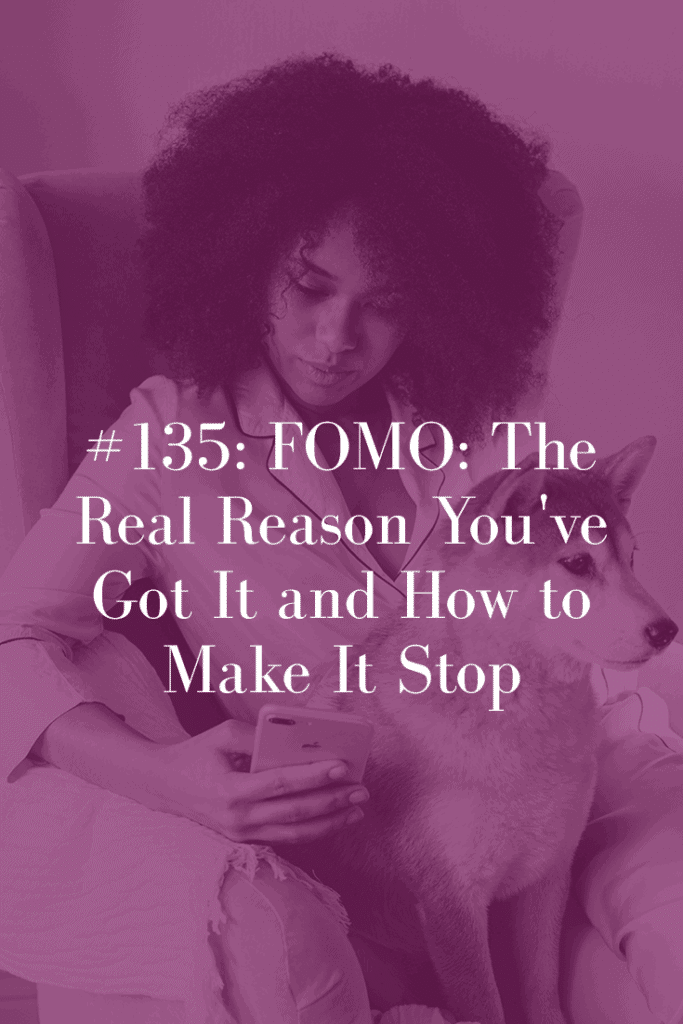
FOMO, or the fear of missing out, is basically your worry and anxiety that other people are doing something that either you should be doing or that’s better than what you are doing. In fact, the research shows that you can still feel like you’re missing out even if what you’re doing in the moment is interesting and fun!
Let’s talk about the signs of FOMO:
- Overcommitting
- Not committing at all
- Ruminating over something you missed
- Feeling regret about how you’ve spent your time (especially when seeing what other people are doing on social media)
- Feeling depressed when you think you’ve missed out on something or something better than what you were doing.
- Focusing on not just being happy, but happier than someone else
- When you see or hear about what someone else is doing you start feeling anxious, excluded, envious or even self-loathing
- Feeling regret before something even happens!
What’s the Big Deal with FOMO?
Studies show that FOMO is associated with many negative outcomes, such as anxiety, depression, stress, fatigue, problems with sleep and even self-harming behaviors.
Why Do I Do It, Abby?
FOMO is a psychological reaction and there are three main reasons you’ve got it:
- You’re loss averse.
- Your brain is wired to look out for new information
- Too many choices
Tips from the Research:
Tip #1: Work on Yourself
First and foremost, you’ve got to address your negative self-perceptions. That means you’ve got to work on your low self-esteem and self-compassion. Practicing a loving kindness meditation has been proven to increase feelings of esteem and compassion so, because I love you, I’ve created one you can listen to as soon as you’re done reading this!
Tip #2: Work on Real Connections
Take active steps to reduce your loneliness (remember, you can feel lonely in a crowd, so this is for everyone whether you’re partnered or not). Work on creating real connections, in real time, with others.
Tip #3: Work on Being Mindful
This also means focusing in the moment on what’s happening right now – not what’s happening “out there.” Be present in your moment and appreciative of what you’re experiencing.
Tip #4: Limit Social Media
Social media can be a huge culprit when it comes to FOMO. Consider taking a long vacation from social media or at least deleting the apps from your phone so it’s just a little more difficult to use. Ultimately, research shows that limiting social media use to less than 30 minutes a day can lead to significant improvement in your feelings of happiness and well-being.
RESOURCES:
Is Self-Compassion the Secret to a Happy Relationship?
8 Ways to Build Your Confidence and Self-Esteem
How 5 Minutes of Mindfulness a Day Can Make Your Relationship Great!
RESEARCH:
“Scared to Stay In: The Psychology of FOMO,” Kings University Online, September 4, 2019.
“Loss Aversion,” Behavioral Economics (accessed March 28, 2021).












